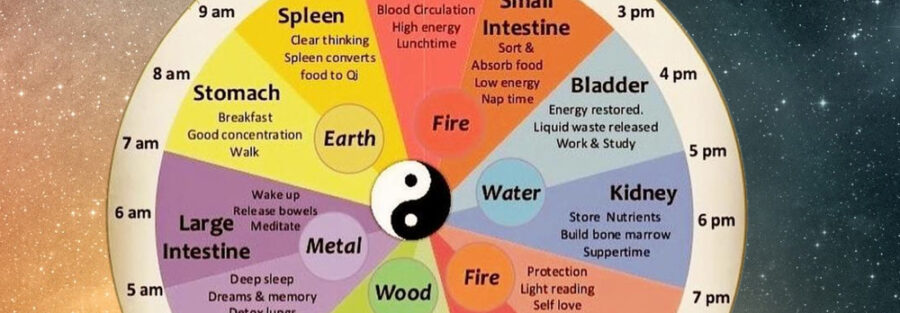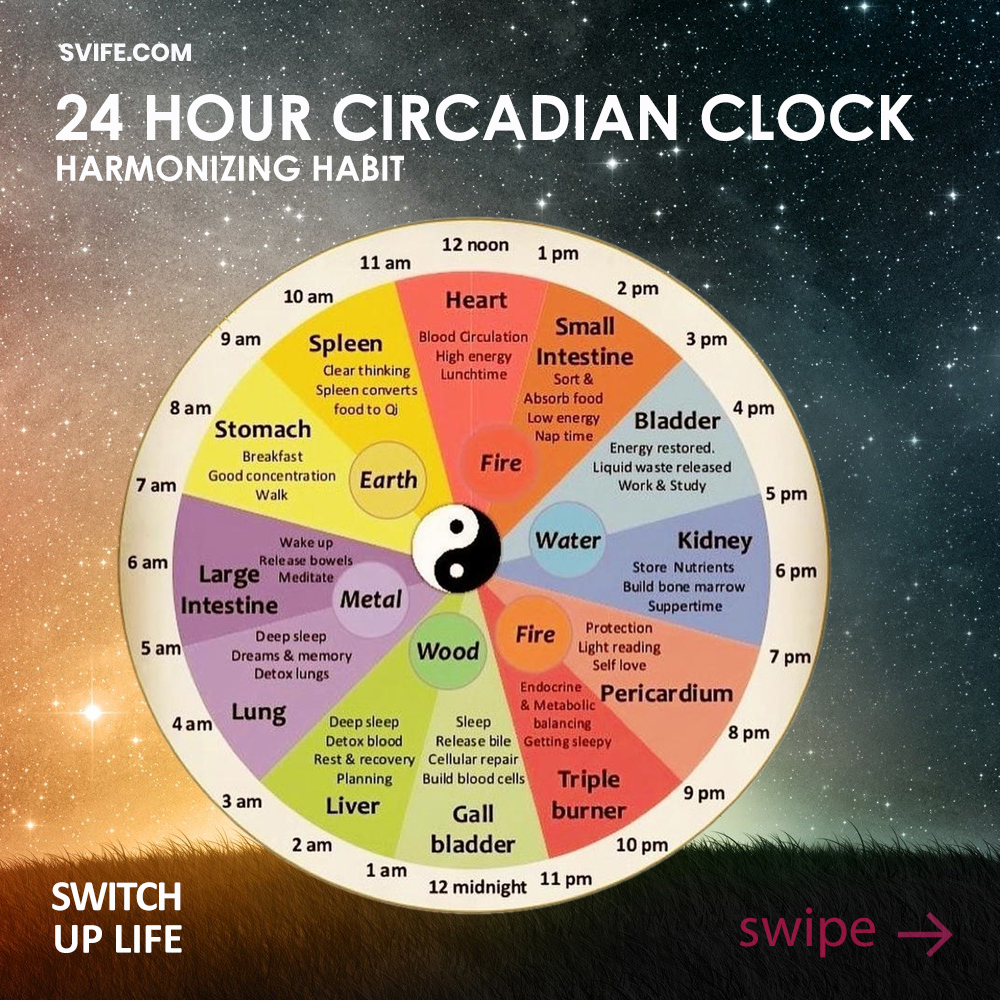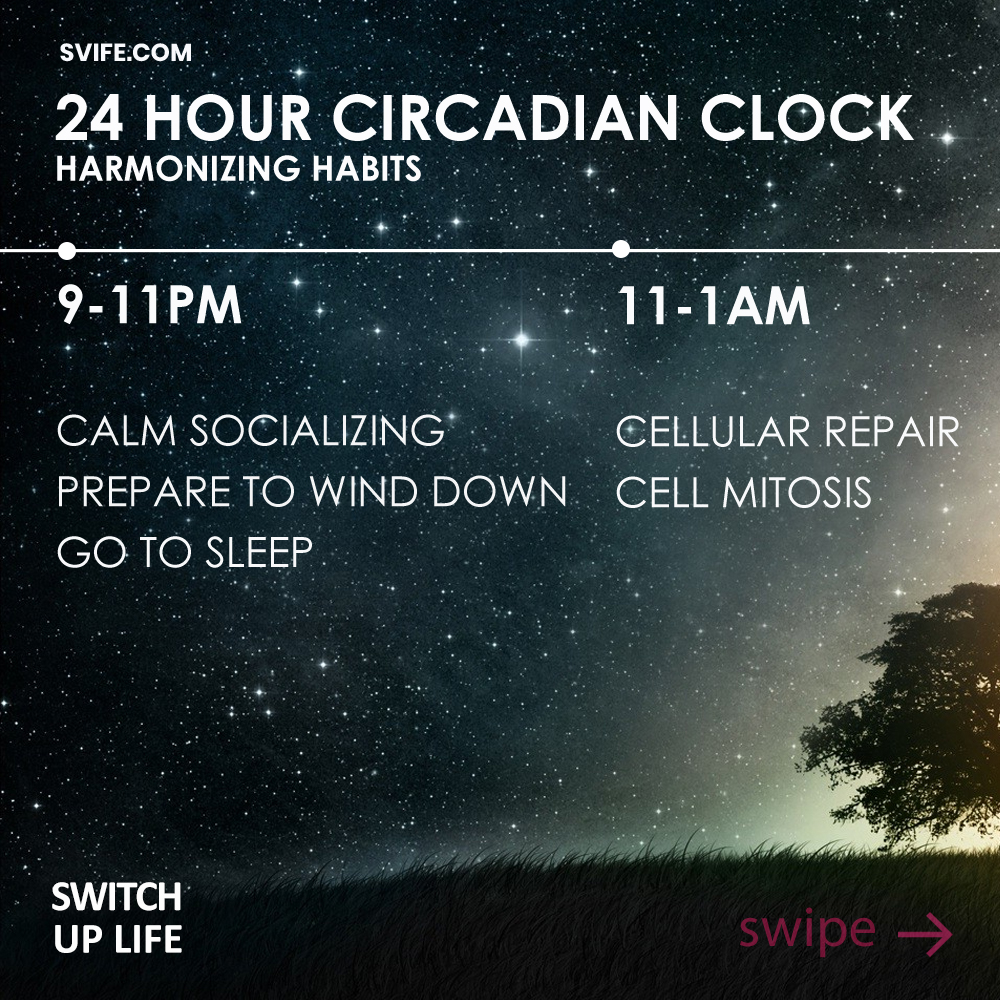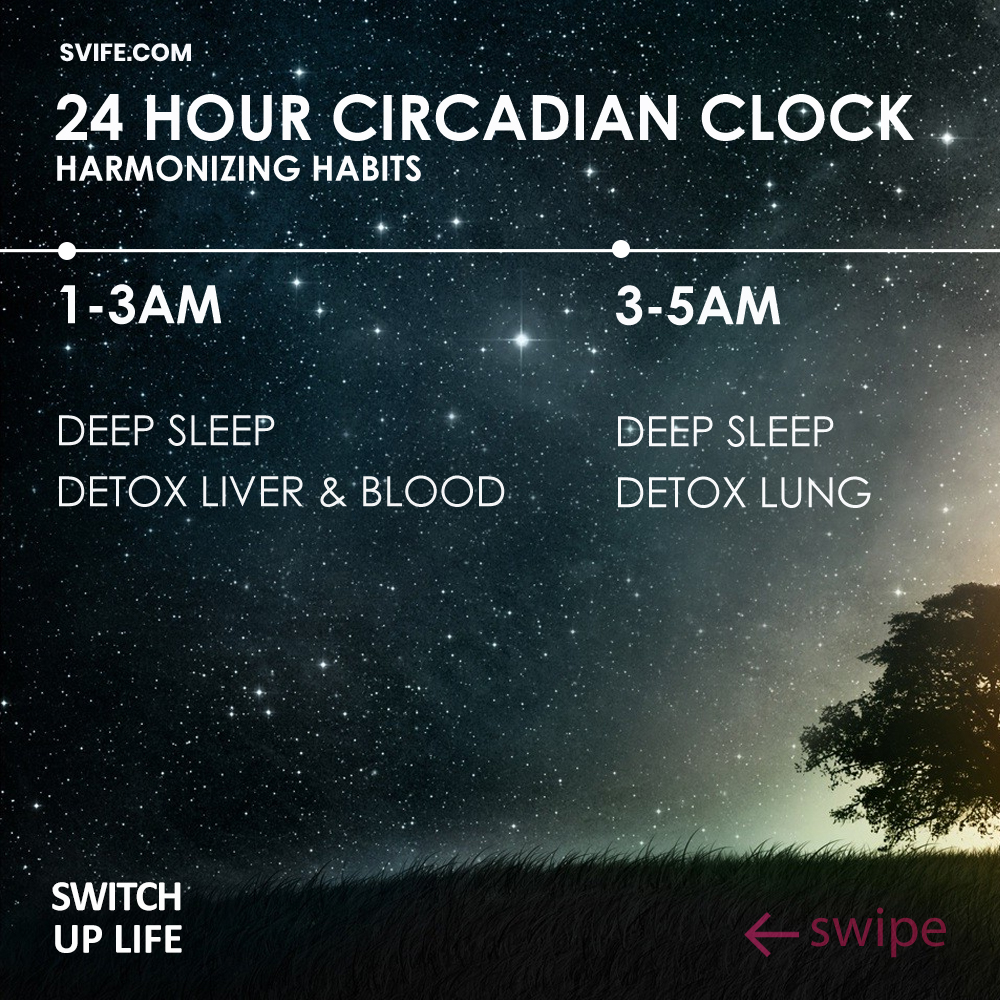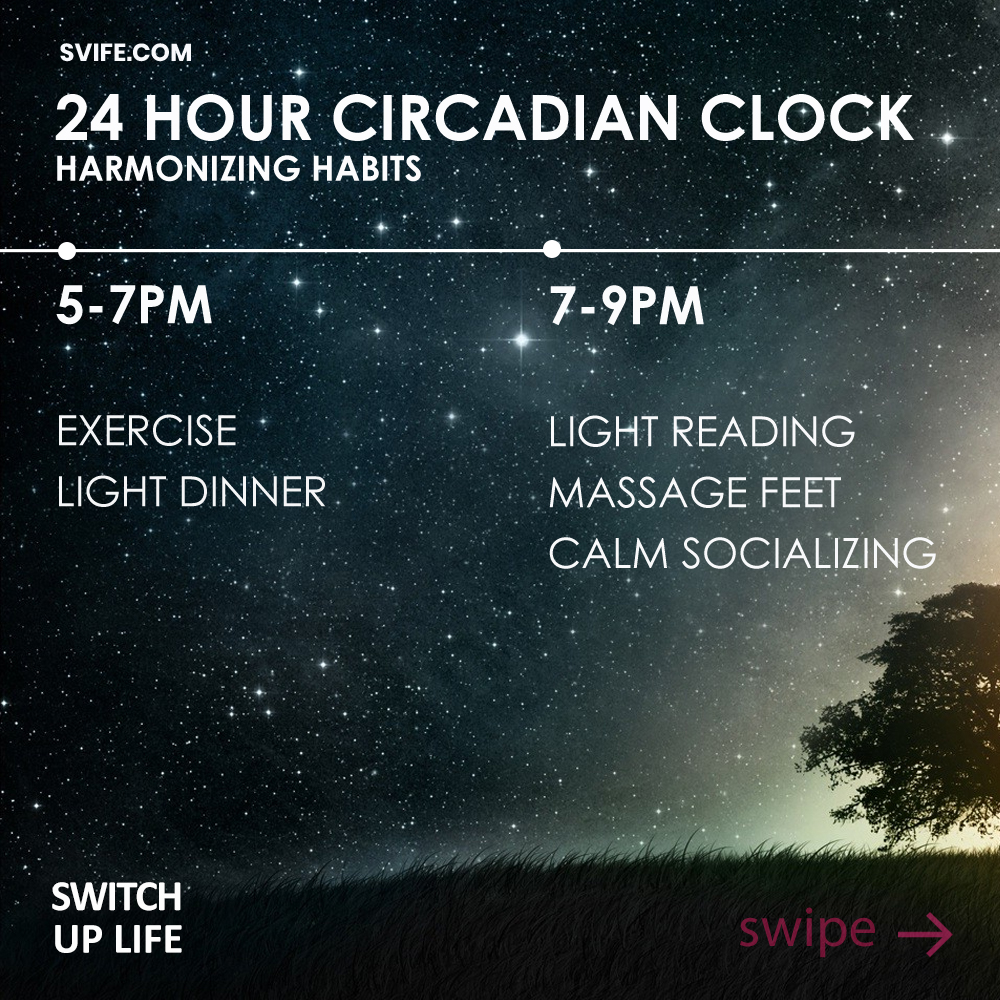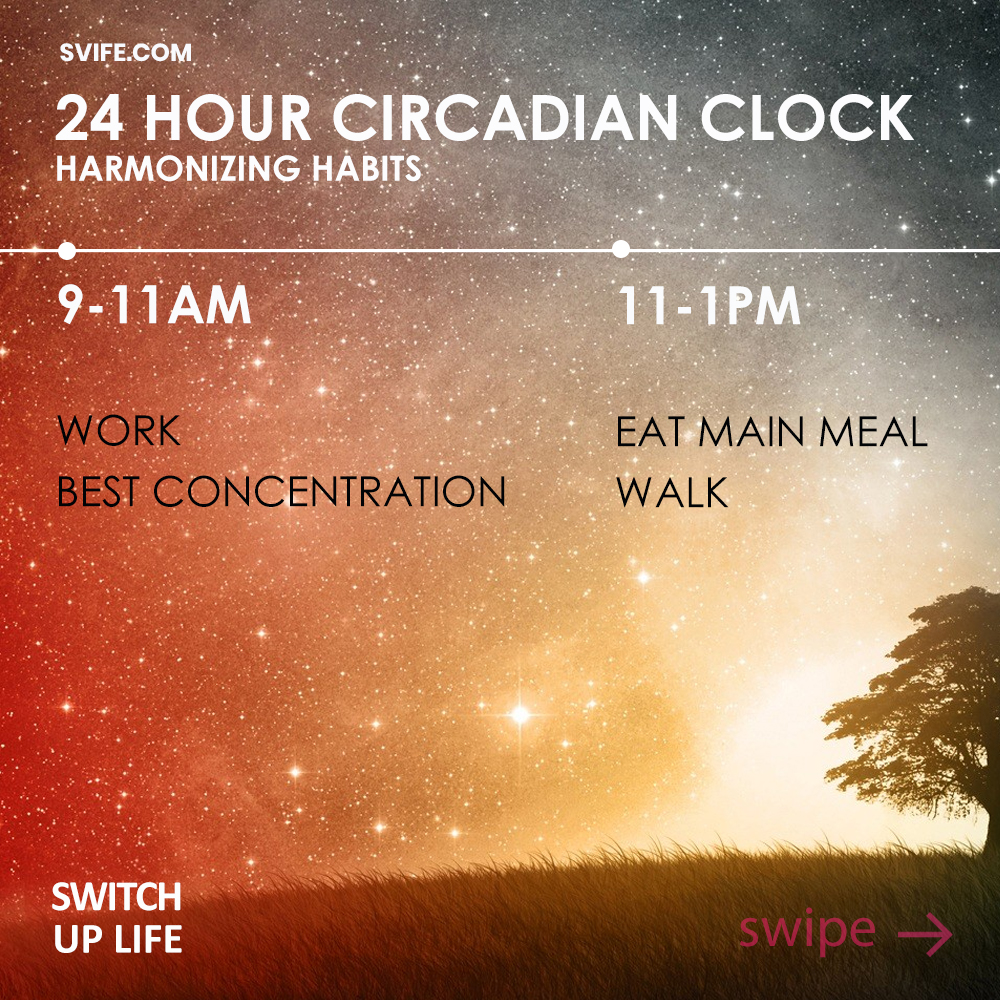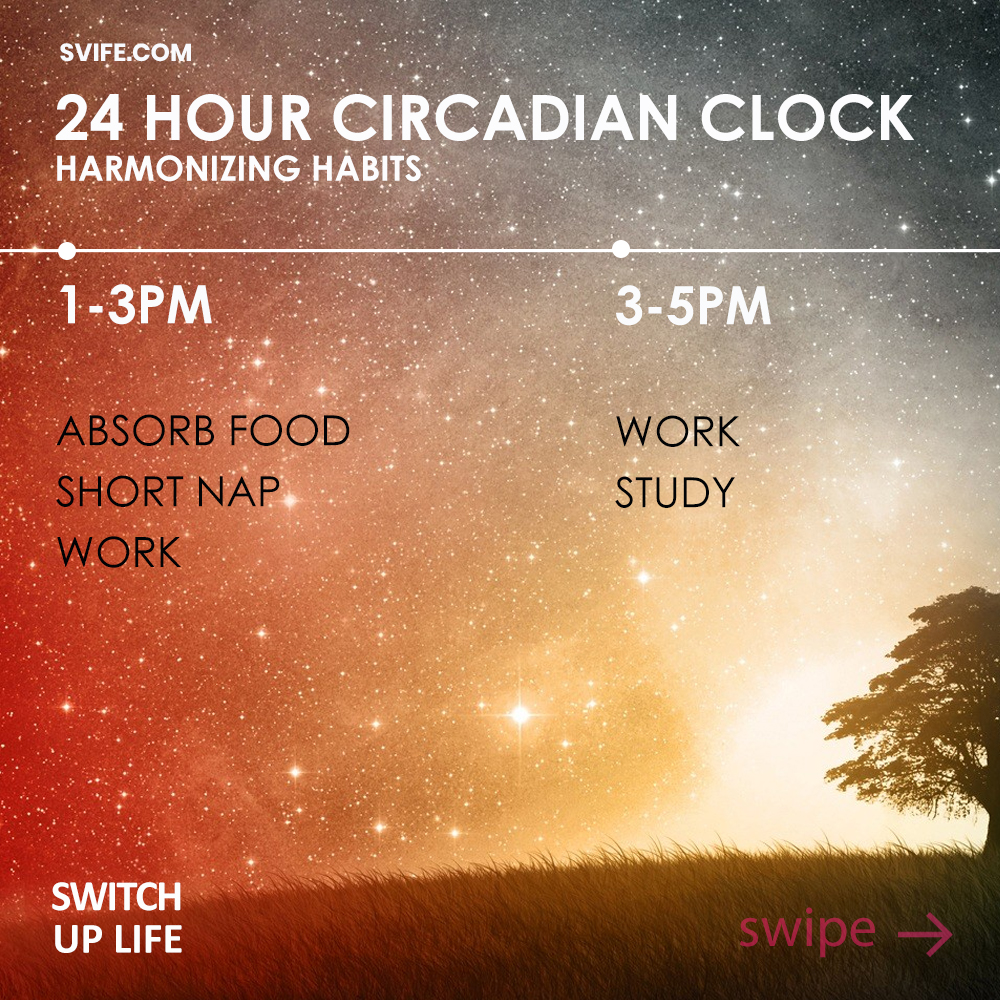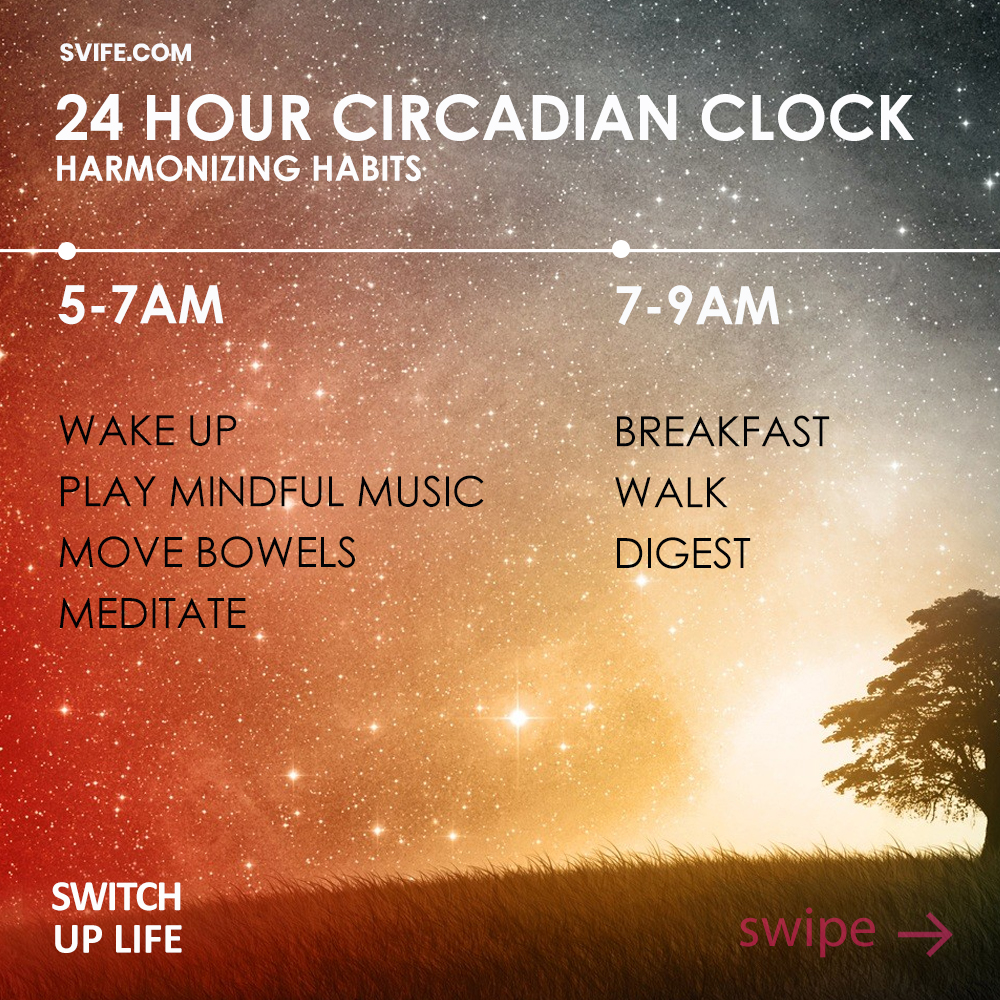Circadian rhythms are the physical, mental, and behavioral changes an organism experiences over a 24-hour cycle. Light and dark have the biggest influence on circadian rhythms, but food intake, stress, physical activity, social environment, and temperature also affect them.
The human body operates on a 24-hour cycle known as the circadian rhythm. This internal clock regulates various physiological processes, including sleep-wake patterns, hormone secretion, metabolism, and cognitive functions. Maintaining a harmonious relationship with our circadian clock is crucial for overall well-being and optimal health. We will explore the importance of synchronizing our habits with the 24-hour circadian clock.
⏰️ Understanding the Circadian Clock:
The circadian clock is primarily influenced by external cues, with the most significant one being light. Light exposure, especially sunlight, helps regulate the release of melatonin, a hormone that controls sleep and wakefulness.
😴 Sleep-Wake Cycle:
One of the most essential aspects of harmonizing with the circadian clock is maintaining a consistent sleep-wake cycle. Going to bed and waking up at the same time each day helps regulate the internal clock and promotes healthy sleep patterns.
🍝 Meal Timing:
The timing of meals also influences our circadian rhythm. Regular meal patterns and avoiding large meals close to bedtime can help optimize digestion and metabolism. Evidence suggests that aligning meal times with the body’s internal clock can improve metabolic health and weight management.
☀️ Light Exposure:
Exposure to natural light during the day and reducing exposure to artificial light at night is vital for circadian clock synchronization.
🏃♀️🚴♀️Physical Activity:
Engaging in regular physical activity can have positive effects on the circadian clock. Exercising during daylight hours can help regulate sleep patterns and enhance alertness during the day.
🧘♀️ Social Synchronization:
Social interactions and daily routines also influence our circadian rhythm. Maintaining consistent social activities, work schedules, and mealtimes with others can help synchronize our internal clock with the external environment.
Conclusion: Harmonizing our habits with the 24-hour circadian clock is essential for overall health and well-being. Consistency in sleep-wake patterns, meal timing, light exposure, physical activity, and social synchronization can help optimize the functioning of our internal clock.

